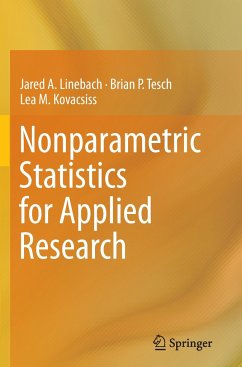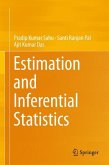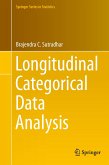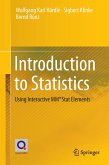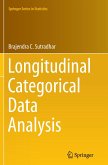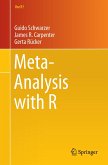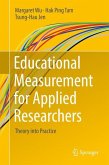Non-parametric methods are widely used for studying populations that take on a ranked order (such as movie reviews receiving one to four stars). The use of non-parametric methods may be necessary when data have a ranking but no clear numerical interpretation, such as when assessing preferences. In terms of levels of measurement, non-parametric methods result in "ordinal" data. As non-parametric methods make fewer assumptions, their applicability is much wider than the corresponding parametric methods. In particular, they may be applied in situations where less is known about the application in question. Also, due to the reliance on fewer assumptions, non-parametric methods are more robust. Non-parametric methods have many popular applications, and are widely used in research in the fields of the behavioral sciences and biomedicine.
This is a textbook on non-parametric statistics for applied research. The authors propose to use a realistic yet mostly fictional situation and series of dialogues to illustrate in detail the statistical processes required to complete data analysis. This book draws on a readers existing elementary knowledge of statistical analyses to broaden his/her research capabilities. The material within the book is covered in such a way that someone with a very limited knowledge of statistics would be able to read and understand the concepts detailed in the text.
The "real world" scenario to be presented involves a multidisciplinary team of behavioral, medical, crime analysis, and policy analysis professionals work together to answer specific empirical questions regarding real-world applied problems. The reader is introduced to the team and the data set, and through the course of the text follows the team as they progress through the decision making process of narrowing the data and the research questions to answer the applied problem. In this way, abstract statistical concepts are translated into concreteand specific language.
This text uses one data set from which all examples are taken. This is radically different from other statistics books which provide a varied array of examples and data sets. Using only one data set facilitates reader-directed teaching and learning by providing multiple research questions which are integrated rather than using disparate examples and completely unrelated research questions and data.
This is a textbook on non-parametric statistics for applied research. The authors propose to use a realistic yet mostly fictional situation and series of dialogues to illustrate in detail the statistical processes required to complete data analysis. This book draws on a readers existing elementary knowledge of statistical analyses to broaden his/her research capabilities. The material within the book is covered in such a way that someone with a very limited knowledge of statistics would be able to read and understand the concepts detailed in the text.
The "real world" scenario to be presented involves a multidisciplinary team of behavioral, medical, crime analysis, and policy analysis professionals work together to answer specific empirical questions regarding real-world applied problems. The reader is introduced to the team and the data set, and through the course of the text follows the team as they progress through the decision making process of narrowing the data and the research questions to answer the applied problem. In this way, abstract statistical concepts are translated into concreteand specific language.
This text uses one data set from which all examples are taken. This is radically different from other statistics books which provide a varied array of examples and data sets. Using only one data set facilitates reader-directed teaching and learning by providing multiple research questions which are integrated rather than using disparate examples and completely unrelated research questions and data.

